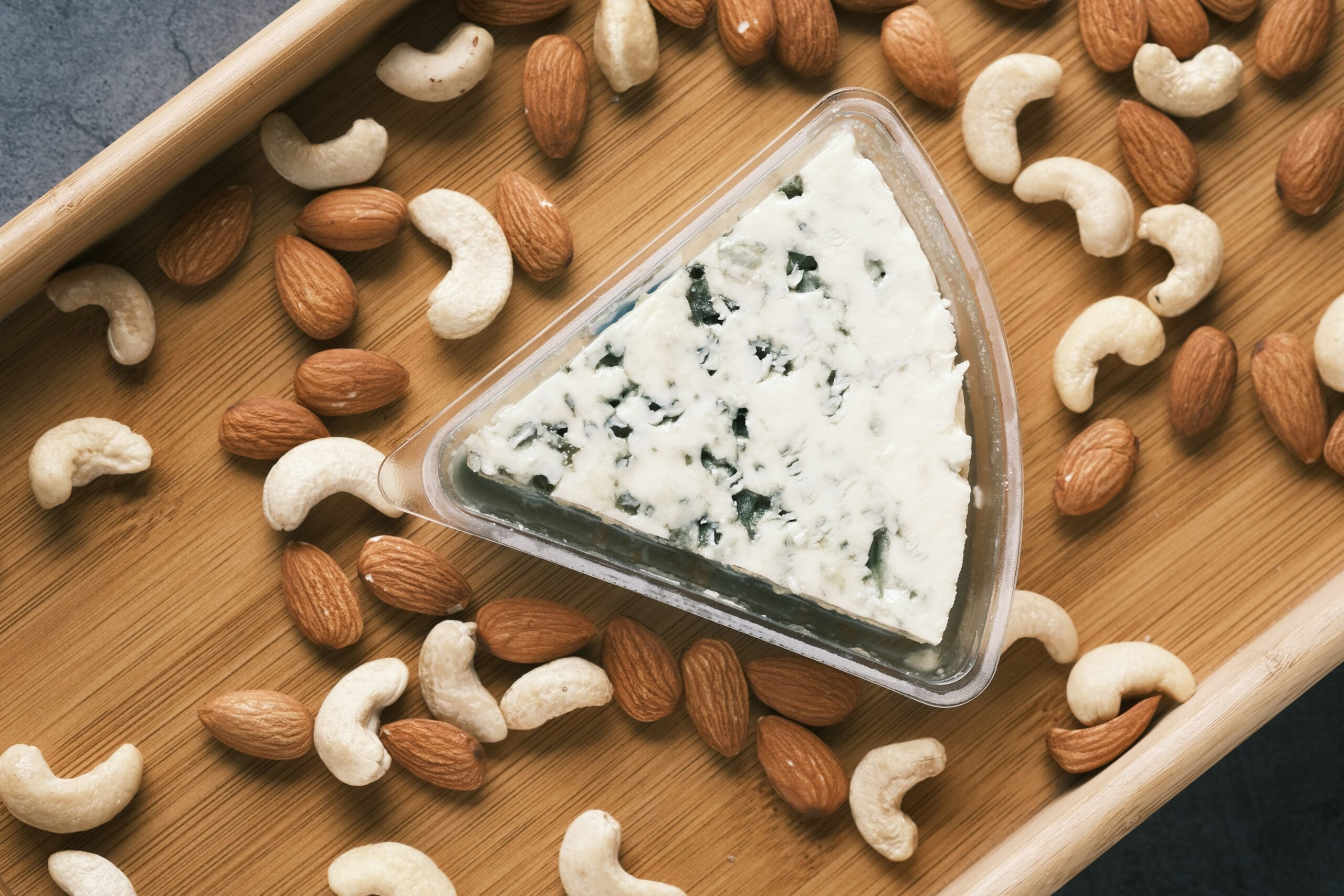
Broken GRAS: It’s time for FDA to wake up and protect consumers from dubious ingredients
Maricel Maffini, consultant and Tom Neltner, Chemicals Policy Director
This blog is the third in our Broken GRAS series where we explore how the Food and Drug Administration’s Generally Recognized as Safe (GRAS) voluntary notification system for novel chemicals added to food works in practice and why it is broken.
In this blog, we examine another voluntary GRAS notice submitted to the FDA, this one for Venetron, an extract of Apocynum venetum leaves. It is marketed for sleep improvement and anti-stress and used as a dietary supplement and food ingredient. Documents obtained through a Freedom of Information Act (FOIA) request reveal that FDA scientists raised safety concerns about Venetron. Under the broken GRAS system, however, the company that manufactures the ingredient was able to withdraw its notification and continue to market the chemical as GRAS, despite the questions raised by the agency.
____
Japanese company Tokiwa Phytochemical (Tokiwa) voluntarily notified the Food and Drug Administration (FDA) in August 2014 that it had determined its extract of Apocynum venetum leaves was Generally Recognized as Safe (GRAS). The extract, called Venetron, would be an “ingredient in food” at levels up to 100 mg per day, the company said in the notice (GRN 530). Tokiwa indicated that Venetron could be incorporated into “health food product[s], such as tablet[s] or capsule[s],” but did not identify specific foods to which the substance might be added.
In support of its GRAS determination, the company presented results of preclinical and clinical investigations that examined the safety of the extract in mice and healthy adult male volunteers. They also reported data on the effectiveness of Venetron to treat individuals with mild depression. It convened a panel of three experts ‒ Drs. Veronika Butterweck (Univ. of Applied Sciences and Arts, Northwestern Switzerland), Sansei Nishibe (Health Sciences Univ. of Hokkaido), and Kuo-Hsiung Lee (Univ. North Carolina at Chapel Hill) ‒ to review the studies, as well as a “history of human intake” of Rafuma [another name for A. venetum] leaf extract and its use as a dietary supplement in Japan and as a drug in China to treat insomnia, kidney disease, hypertension and heart palpitations.
Tokiwa said the panel “unanimously concluded that VENETRON™, when used in foods in general at levels providing a daily total intake of 100mg/person/day, is safe,” and that the GRAS determination was based on “scientific procedures supported by a history of safe use.”
What is Venetron?
Tokiwa described Venetron as a brown powder “extracted from A[pocynum] venetum leaves and contains not less than 4% of hyperoside and isoquercitrin,” chemicals that are members of a larger class of plant polyphenols called flavones. The extracted product can then be incorporated into health food “for anti-stress, anti-depression and sleep improvement,” the company said.
FDA had (many) questions
After receiving the GRAS notification, FDA scientists asked the company whether the extract was intended to be used in food or as dietary supplement. If the former, the FDA asked Tokiwa to indicate which types of food Venetron would be used in. A few days later, the company confirmed that the extract was “intended to be used as a dietary supplement.” In response, the FDA said Tokiwa should contact the agency’s dietary supplement program and concluded that it “intended to stop evaluation of your GRAS notice.”
However, a few days later the company reached out to FDA again saying that the extract “is intended to be used in conventional food, such as beverage, jelly, as well as supplement. Therefore, we hope you will continue the evaluation of our notice.”
As the company requested, FDA scientists continued their review of the safety assessment, outlining a number of concerns. The FDA said Tokiwa’s notice:
- Doesn’t meet the GRAS standard “due to FDA’s classification of the substance as a new drug” based on the company’s promotion of Venetron to treat health conditions.
- Lacks discussion of intended use on specific food categories and information on per serving use levels.
- Lacks explanation of how an intake level of 50 mg/person/day would be achieved. [Note: the company said it would add up to 100 mg of Venetron per day to reach the desired effective dose. Consumption levels are usually expressed per serving as weight of food].
- Lacks detailed composition of the substance and discussion of the components present in the extract.
- Lacks safety discussion of the major potential health risks associated with the components of the extract, including:
- Hyperoside and reproductive effects;
- Isoquercitrin and effects on calcium regulation and body weight;
- Quercetin and genotoxicity and carcinogenic effects in rats; and
- Catechins and concerns FDA had previously expressed that it may cause fetal leukemia and liver cancer and affect the thyroid, testis, spleen, pituitary, and gastrointestinal tract (Note: we added the concerning effects FDA raised when it reviewed the safety of catechins from green tea extract GRN 225).
- Uses a safety factor of 30 instead of 100 as recommended in regulations and FDA’s Redbook.
- References included an unpublished internal report on clinical studies and foreign language publications without translation.
The company asked FDA whether human clinical data that support treatment of health conditions could serve as the basis for its safety discussion. FDA staff, however, said the purported health benefits could not be a substitute for evidence of safety, clarifying that “we specifically seek safety studies with specific endpoints, and that health benefits or efficacy of the substance is not relevant to the safety discussion.”
Following the FDA’s questions and its clarification on the need for safety data, Tokiwa on November 8, 2014, asked FDA to cease its evaluation.
Venetron marketed as GRAS and for its health benefits
Tokiwa markets Venetron as GRAS and touts its health benefits, despite the withdrawn evaluation. The product’s webpage states that “VENETRON® has acquired self-affirmed GRAS certification, and confirmed safety through animal and human trials.” It explains that self-affirmed GRAS is “[a] type of GRAS that is acquired by [the] manufacturer through convening the formation of a panel of experts to assess the safety of their particular ingredient along with standard[s] established by FDA.” The company also says that it “is applying for “GRAS” certification.”
The statements are accompanied by a table summarizing the safety data.
A video also promotes the product’s use in regular tablet form supplements, chocolate, candy, gummies, and drinks. The video touts Venetron’s combination with other supplements, including GABA, an ingredient we previously discussed as raising major safety concerns at FDA. According to the Venetron product website, the “synergistic effect of VENETRON® and GABA” together “may be more potent for stress [relief].”
Lack of FDA action allows for the proliferation of products with potentially significant health risks
We were unable to identify any action the agency may have taken (e.g., warning letter to the company) despite its own determination that Venetron is a new drug that raised many concerns among agency scientists. We also reviewed the GRAS notices inventory and the new dietary ingredient notifications and have not found new submissions for Venetron since the November 2014 withdrawal.
At the bare minimum, FDA should warn the public of the health risks of Venetron itself and publish an advisory to avoid combining Venetron with GABA due to a potential increase of the purported effect of the chemicals when taken together either as supplements or food.












